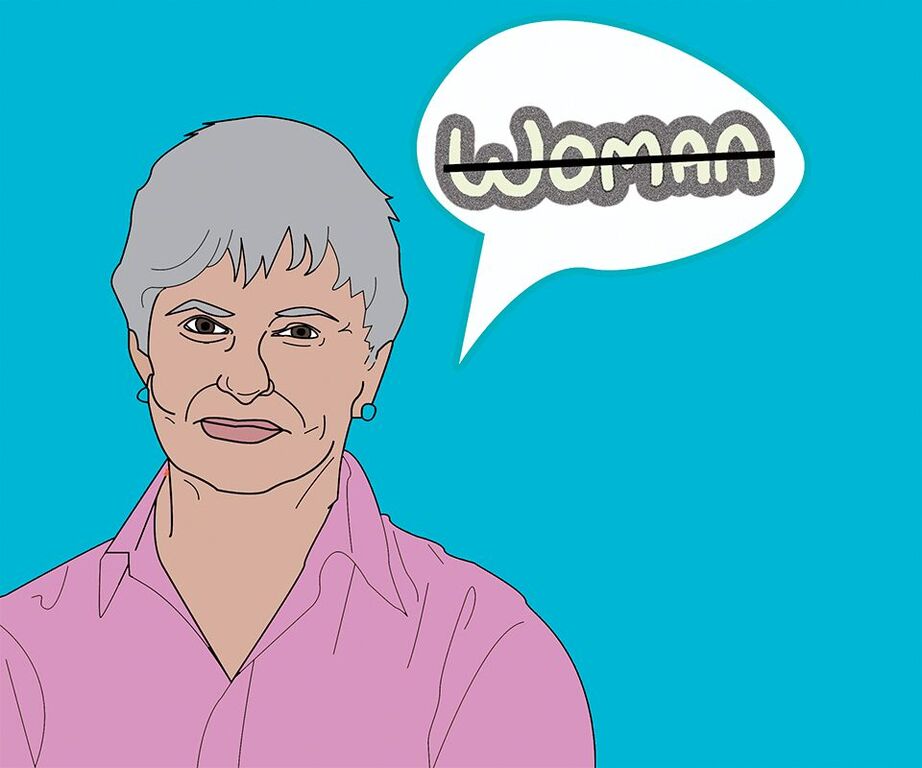One student’s response to Barbara Kay’s misogynistic piece in the National Post
Gender politics has been a hot topic for quite some time now. With the rise of controversial figures such as Jordan Peterson and Ben Shapiro, people from the right-wing of the political spectrum have entertained their ideas, calling their comments “free speech” when they are clearly insulting someone’s identity. Barbara Kay, a columnist and former Concordia English literature professor, shares similar beliefs to these men.
In an article published in the National Post on Sept. 13, Kay used biological reality as a weapon to blatantly discriminate against transgender activists. In the article, titled “Diluting the meaning of ‘woman,’ to appease transgender activists, is misogyny,” she argues that radical trans activists “are guilty of the worst form of misogyny in their ruthless campaign to erase from our thoughts the human female body as a unique life form.”
Kay’s perspective disrespects trans women who tenaciously fight for their right to be recognized as equal to cisgender women. Kay’s idea of misogyny ignores the same misogyny that many trans women face on a daily basis just to operate as women in our society. Trans activist and actress Cassandra James shared her struggles with misogyny in an interview with The Hollywood Reporter saying, “I remember complaining to a co-worker of mine, who was a cis woman, about some of the [misogyny] I was experiencing, and she said, ‘Welcome. Welcome to what it means to be a woman.’” James’s experience is only a fragment of what thousands of trans women face including sexual assault, hostility, and cat-calling both in public and in the workplace.
In my opinion, Kay played selective feminism, as she willingly chose to ignore the complex misogyny that trans women face. She only took into account the misogyny faced by cisgender women.
There is a fine line between free speech and offensive speech. In Kay’s article, she criminalizes transgender individuals by presenting the anecdote of Karen White, a trans woman who sexually assaulted four women in a women’s prison after being sentenced to 18 months for the sexual abuse of a child. Kay reinforced the belief that trans women are men who pretend to be women in order to sexually assault women and minors. She misled people to believe that we must be afraid of trans women because they are ‘wrongdoers.’ Promoting these types of ideas further marginalizes transgender individuals while creating further stigma and prejudice. We must not hold an entire group accountable for the actions of one individual, because it conveys to the public that transgender individuals are the same as child molesters.
Many individuals firmly disagree and call it “politicizing language” to consider trans women “real” women. They also argue that trans women are biologically male and, therefore, cannot be women. I believe language should be used to reflect reality. The word ‘woman’ was initially created to encompass only women who were born biologically female. Now that many trans women have disclosed their identity, it is important to redefine ‘woman’ to include trans women, and essentially, to better reflect reality. Since trans women identify and have always felt themselves to be women, I believe it is our duty to include them in that definition. This is important, not only for social inclusion, but also to reflect a subjective reality that both cisgender women and transgender women experience.
There is clear scientific evidence that shows transgender individuals’ feelings of being born as the wrong biological sex. In an article titled “Biological origins of sexual orientation and gender identity: Impact on health” published by PubMed, researchers confirm that “multiple layers of evidence confirm that sexual orientation and gender identity are as biological, innate and immutable as the other traits conferred during [the first half of pregnancy].”
I believe the definition of ‘woman’ is a socially-driven term that refers to one’s gender identity, gender expression and gendered role in society. The idea that gender is intrinsically connected to one’s biological sex is a false claim; many transgender, intersex or individuals with chromosomal abnormalities live as a different gender from their biological sex. Furthermore, there are many cisgender women who are infertile or born with conditions where the vagina and uterus are either underdeveloped or absent. Aren’t they women? Sorry Barbara, but women come in all shapes and sizes.
Graphic by @spooky_soda




